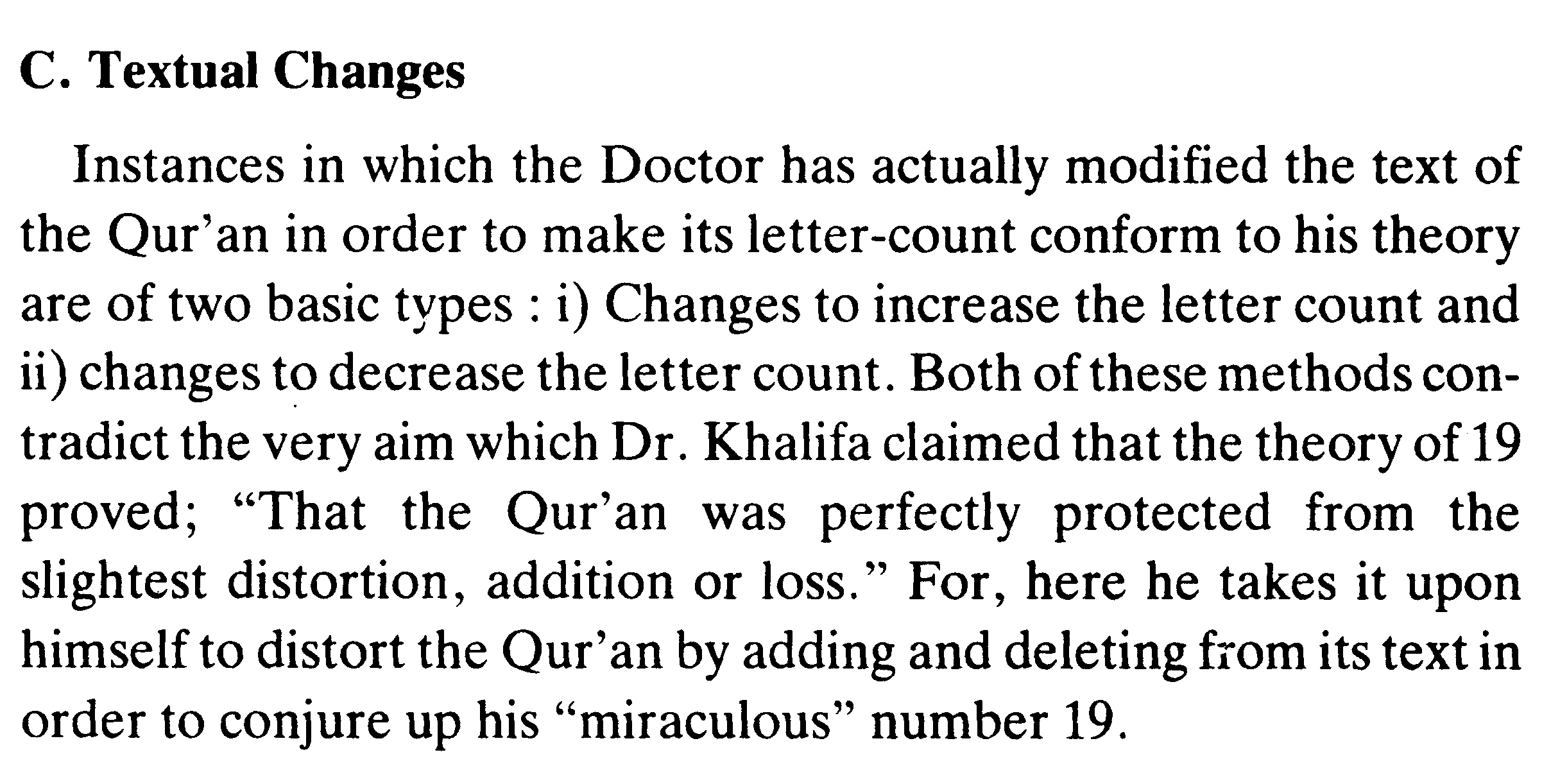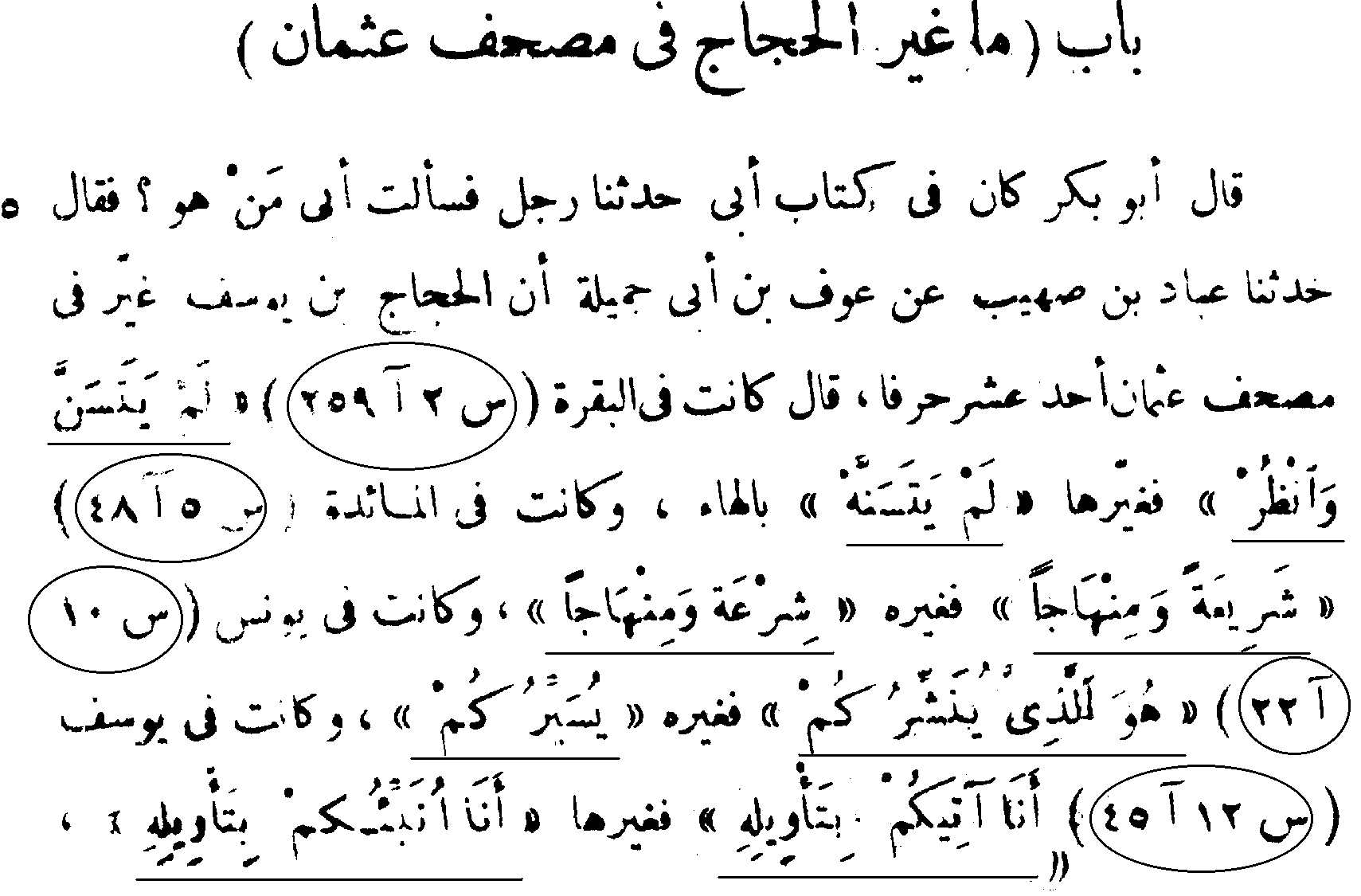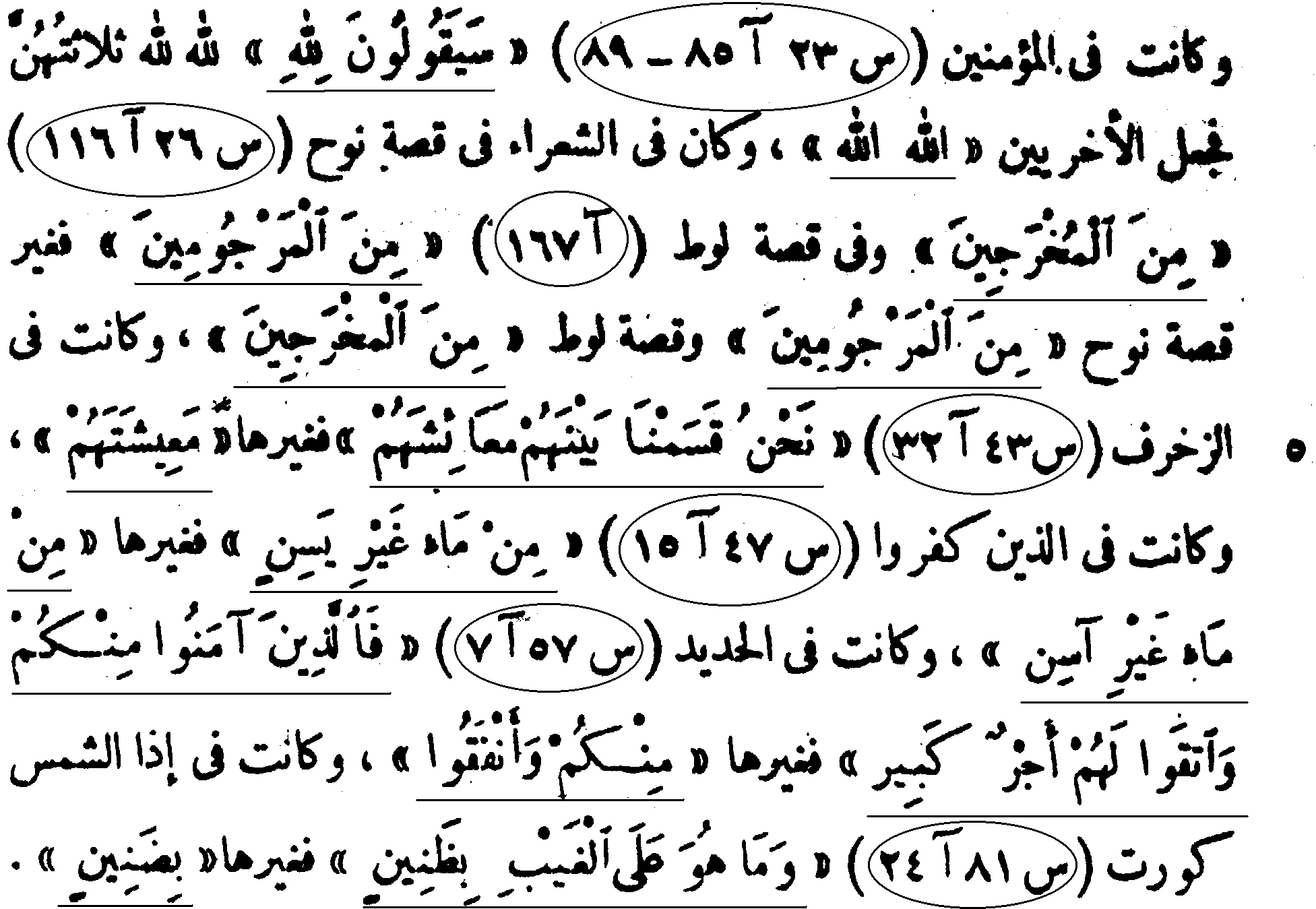|
Part 2: The True State Of The Qur'an Back To Main Index CHAPTER XIV: MORE THINGS TO PONDER ‘Heretical Steps’? All this raises another matter, for Bilal Philips, in refuting Dr. Khalifah’s false ‘Miraculous #19’ theory about the text of the Qur’an, has also accused him of making a "HERETICAL STEP". The "heretical step" was that he reproduced a portion of a Qur’anic printing in which a ‘correction’ had been made in Q7:69! The printing had replaced the sad in the graphic form of Q7:69 with sin above the text, which Islam uses to ‘alter’ the pronunciation of the sad in the graphic form and places above the text! [As already noted, the same word bastatan is correctly spelled with a sad in Q2:247.] But, Philips, knowing all we have examined, in a feigned effort at horror wrote: "This was achieved by taking the heretical step of actually deleting a Sad from the Surah. Dr. Rashad Khalifa rewrote the same word which he had previously held up as evidence of divine intervention in maintaining the miraculous code of 19. He removed the Sad from the word There is no difference between this and all the ‘corrections’ that the Turks, etc., had done over the centuries, and which the Egyptians ‘undid’ in their 1924 Egyptian text. For example, what of Q21:88 and the missing nun which has been inserted into the Turkish graphic form? And, Islam still continues to print all such "heretical steps" and calls them ‘perfect’, and ‘protected’ Qur’ans! All this enforces the conclusion that one cannot agree with Hamidullah that "only one consonant" is ‘missing’ from the text of the Qur’an! It also causes one to conclude that the Qur’an is neither ‘perfect’ nor ‘protected’. After all, each and every case of ‘overriding’ and ‘replacing’ and ‘adding to’ we have examined involves ‘wrong’ or ‘missing’ consonants that in reality are being ‘replaced’ by other consonants, even if they are "made to appear" vocal. And what does it matter if it was scribal error or later deviation from the ‘Uthmanic attempt to preserve ‘1 Form’? In fact, as for the charge of "heresy", one can easily take the subheadings from Bilal Philips own book 19 HOAX AND HERESY, and apply them directly to everything Islam has been doing, all that we have just noted! He writes: "5. LETTER COUNT: DATA FALSIFICATION (p. 20) ...The falsification of letter count data may be grouped under three 163 |


 ***
*** 